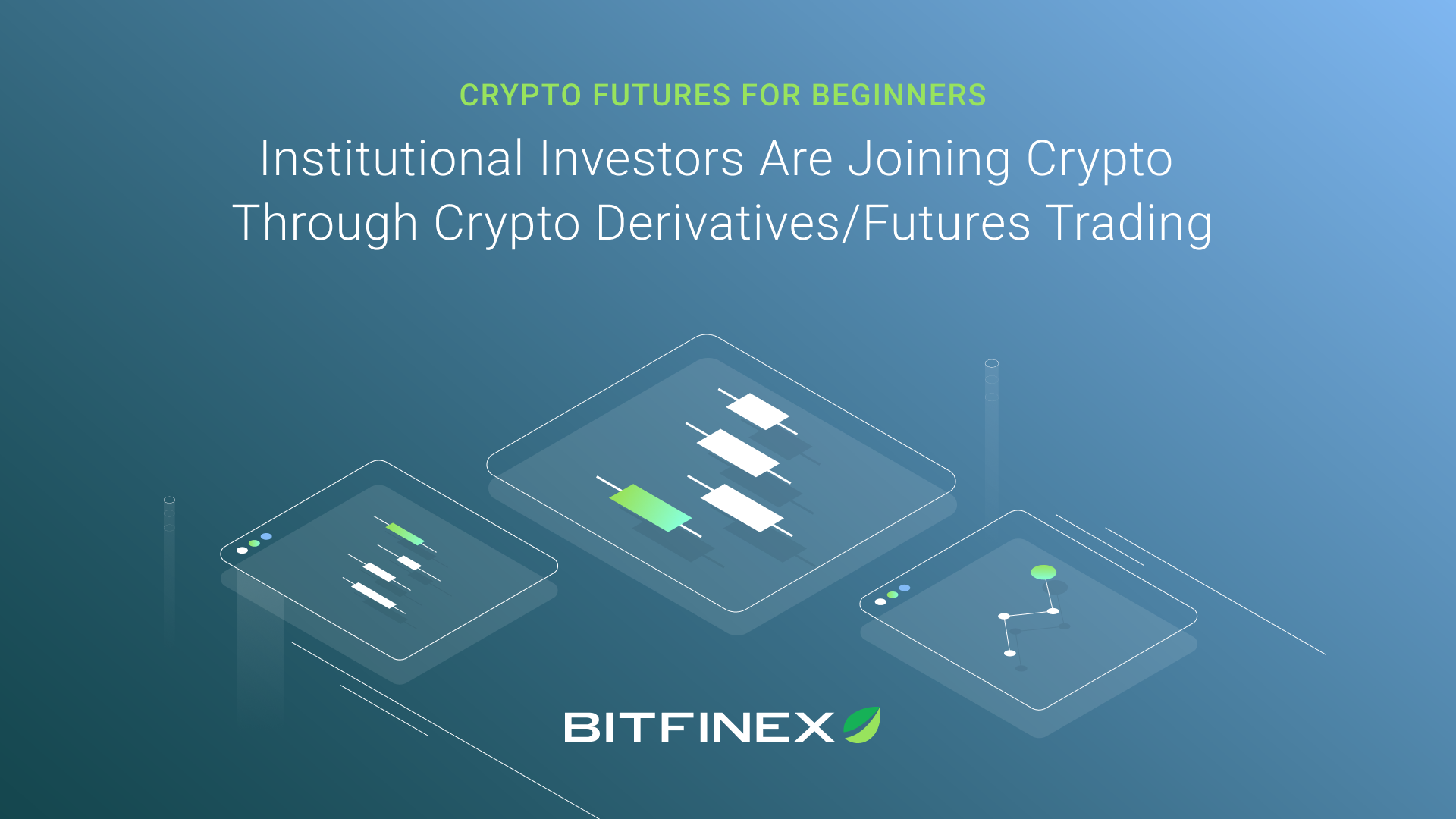
21 Jan Institutional investors are joining crypto through crypto derivatives/futures trading
For several years now, institutional involvement has acted as a quasi-holy grail of which many in the cryptocurrency ecosystem have pined for. Experts seem to agree that one crucial catalyst for real growth will be the engagement of these players, and slowly but surely, more and more of these lauded entities have joined the fray.
In the past, attempts to create further institutional on-ramps have been less than fruitful. Tireless efforts from VanEck, Wiltshire Phoenix, and Bitwise to create an exchange-traded fund (ETF) based on cryptocurrencies have fallen mostly on deaf ears. The Security Exchange Commission (SEC) has rebuffed countless ETF applications over the years, citing unstable custody solutions, market immaturity, and ease of manipulation in every single refusal.
Vehicles for adoption
The community has long since given up on the notion of a crypto ETF. Besides, there already exist a number of avenues for institutional traders to occupy themselves within the burgeoning crypto markets.
Rather than squander the opportunity of institutional involvement, crypto futures exchanges such as Bitfinex embraced these newfound accredited traders. Tailoring to meet the specific needs of professionals Bitfinex instilled corporate accounts, offered institutional-grade connectivity and expedited verification in compliance with the legal specificities of crypto derivatives markets.
A further easing-in of institutional investors was aided by the entrance of financial giants such as Fidelity Investments and the Intercontinental Exchange’s Bakkt. These respected organizations provided an air of legitimacy to a space in dire need of credibility. In turn, institutional traders who had been previously advised to stay well away have begun to take a second glance.
This isn’t just a recent occurrence, either. Since late 2017 a surplus of these entry points catering specifically to institutional investors have propped up. Among them, the Chicago Mercantile Exchange (CME)—offering one of the first regulated bitcoin futures trading instruments. The proliferation of cryptocurrency derivatives trading fast became critical to institutional adoption. However, while the CME allows for institutional speculation into the market, involvement in the true sense of the word pretty much ends there. Rather than the contracts being settled in bitcoin—and therefore adding to the overall liquidity of the underlying markets—CME bitcoin futures are settled in fiat.
Nevertheless, thanks to the CME, institutional traders’ curiosity has been piqued. Where the CME succeeded in laying the path for accredited traders to simply speculate, exchanges such as Bitfinex and its crypto settled futures offer a direct method for tangible and versatile accumulation. For example, Bitfinex settles all of its crypto futures contracts in USDt, providing institutional players with an adaptable cryptocurrency with the added benefit of contributing liquidity to the broader crypto market.
Crypto futures: The ultimate catalyst for institutional involvement?
Institutional money was always destined to be drawn to futures trading strategies. Derivative trading is a concept well understood by many accredited investors. Their prevalence in the US stretches back to the 19th century with the initiation of grain futures markets. Today, these instruments remain a favored method of trading among Wall Street players—allowing a capital-efficient approach to exposure while mitigating unwanted risk.
In fact, the common attributes found between traditional futures and crypto futures likely stands one of the resounding reasons why institutional traders are becoming so enamored by the latter. The ability to speculate on cryptocurrencies—while negating the risk typically associated with holding them—presents an interesting opportunity for many traders.
Moreover, futures markets typically minimize the risks of manipulation. As discussed, the fears surrounding manipulation in the underlying cryptocurrency markets has been a critical reason keeping many institutional investors at bay. Nevertheless, thanks to the practices employed by crypto futures market makers, unfair liquidations via manipulation are often avoided. Bitfinex, for example, employs a mark price system to equitably set the value of the contract. This is calculated via an index of evenly weighted prices from pairs traded across multiple exchanges—ensuring the fairest price possible.
The diversity of crypto futures
Of course, while the majority of institutional traders likely gravitated toward derivative offerings from the CME or Bakkt, instruments provided by crypto-based platforms have numerous advantages over the aforementioned institutional frontrunners.
First and foremost, crypto futures platforms such as Bitfinex enable the use of leverage. Allowing leverage within derivative offerings boosts buying power and enhances potential return. Further, by employing leverage, barriers to entry are lowered—progressing adoption and allowing for a broader, more diversified demographic of trader.
Perpetual contracts are another facet available on crypto-based futures platforms. Bitfinex is one of the leading providers of perpetual contracts. These offerings work in much the same way as traditional futures, only on a rolling basis. As long as a trader can fund the position, perpetual contracts may stay open for as long as is desired. Further, this method also negates costly fees associated with renewing positions periodically.
*The derivatives platform is provided by iFinex Financial Technologies Limited. References to Bitfinex Derivatives in this post are references to iFinex Financial Technologies Limited.



